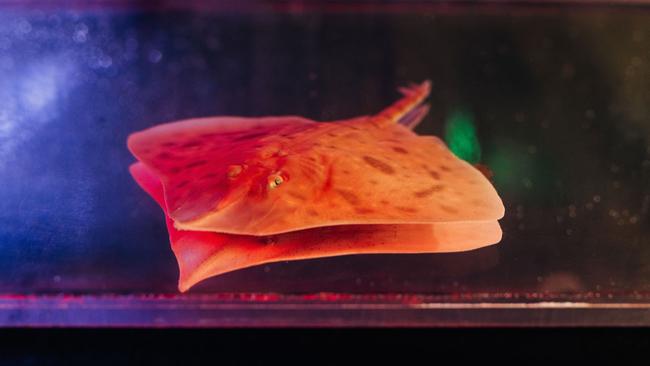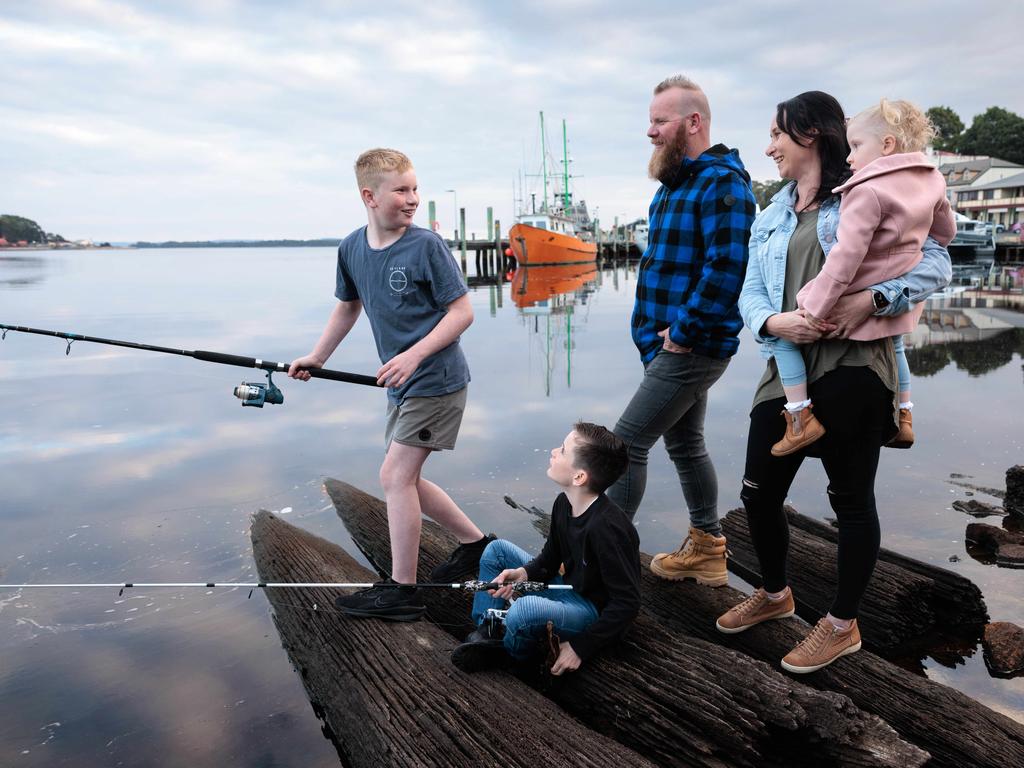Rare Maugean skate fish doing swimmingly
In a breakthrough for one of the nation’s rarest fish, the Maugean skate, scientists report ‘great’ success in breeding the species in captivity, dramatically turning around earlier setbacks.

In a breakthrough for one of the nation’s rarest fish, the Maugean skate, scientists report “great” success in breeding the species in captivity, dramatically turning around earlier setbacks.
The ancient species — a link to the dinosaur age — clings to a precarious existence in only one harbour on the planet, amid multiple threats, including salmon farm and mine pollution impacts.
Scientists from the Hobart-based Institute for Marine and Antarctic Studies have this year been attempting to establish the first captive population, as insurance against the skate’s extinction.
After initial setbacks – the death of two captured skates and two hatchlings — there are now 35 skates in captivity and the population is growing quickly.
Program leader Professor Jayson Semmens said 24 had hatched from eggs taken from the species’ only home, Macquarie Harbour, in Tasmania’s west, while 11 had hatched from eggs laid in captivity.
“It’s going great … we’re probably ahead of where we thought we’d be,” Professor Semmens told The Australian.
So much so that IMAS, with $800,000 Tasmanian government funding, will later this month begin building a new purpose-build skate captive breeding centre at its Taroona site. “We have got more and more animals, so we’re building to increase our capacity,” Professor Semmens said.

Despite it being the first attempt to breed the enigmatic species in captivity, the program is exceeding wild hatchling survival rates.“They (captive born hatchlings) are showing (mortality) rates that are much lower than you would expect in the wild,” said IMAS researcher David Moreno. “It’s really outperforming what you would expect to be even naturally happening.”
The program is currently considering genetic information about the wild population, thought to number well below 1500.
The idea is to target future additions to the captive program from the wild according to their genetics.
“You want to have a certain number of what’s called founders — individuals that represent the genetics in the population,” Professor Semmens said.
This work would determine how any skates were kept in captivity. As well as being an insurance against extinction, individuals could be reintroduced to the wild to replace any loss of genetic diversity if the species declines further.
Professor Semmens said the program’s initial mortalities had been a “valuable learning experience” and urged the public to be understanding of future fatalities, as part of any breeding program.
“This is not easy — no one has ever done it before,” he said. “This is an animal that’s never been kept in captivity before. It’s a hyper-specialist and we’re taking it out of its environment. So there’s going to be things that don’t go as planned.”
More wild skates could be added to the captive program from early 2025, with the new purpose-built facility planned to be ready by April.
Federal Environment Minister Tanya Plibersek is reviewing government approval for salmon farming in Macquarie Harbour on advice it has had a catastrophic impact on the species.






To join the conversation, please log in. Don't have an account? Register
Join the conversation, you are commenting as Logout